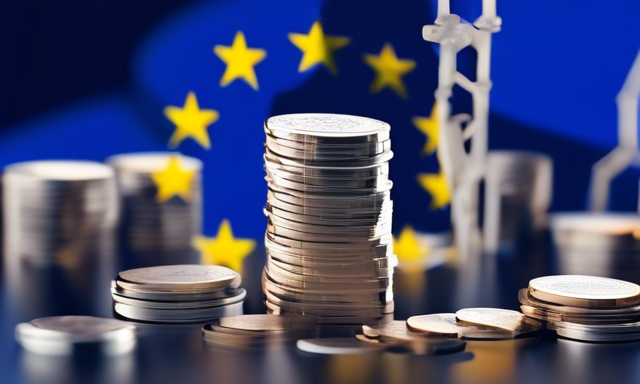The European Union’s Plan to Establish a Centralized Asset Register Across Member States 🌐
The European Union is considering the creation of a centralized “Asset Register” to monitor the assets of citizens throughout the bloc. In a bid to combat money laundering and tax evasion, the EU has released a tender for a “Feasibility Study for a European Asset Registry.” This study aims to explore ways to gather and connect data from various sources, including land registries, company registers, trusts and foundations registers, and central depositories of securities ownership.
By consolidating this information, the EU hopes to develop a robust system for tracking asset ownership across all member states. The proposed register would cover a wide range of assets, including real estate, bank accounts, securities, vehicles, art, precious metals, and cryptocurrencies like Bitcoin (BTC).
- The feasibility study will investigate data collection and linking mechanisms across different sources.
- The final list of assets to be included in the register will depend on the study’s outcomes and legislative decisions.
“Collection of data and interconnection of registers is a key instrument under EU law to speed up access for competent authorities to financial information and facilitate cross-border cooperation. This project shall look into various possibilities for collecting information to set up an asset registry, which may afterward feed into a future policy initiative,” the EU noted.
Privacy Concerns Surrounding the Proposed Asset Register ✋
If the proposal moves forward, it could trigger significant privacy concerns. However, the EU clarified that the planned asset register would not introduce new privacy challenges. Instead, it would grant relevant authorities in all member states access to pre-existing data.
Despite the potential privacy implications, the specifics of the implementation will be shaped by the outcomes of the feasibility study and subsequent legislative processes. Interestingly, this is not the first instance where the EU has been engaged in monitoring citizens’ interactions with various assets.
- In 2021, the European Commission announced regulations requiring cryptocurrency exchanges to collect information on individuals involved in crypto transactions.
- These regulations align with the “Know Your Customer” (KYC) rules imposed on other financial institutions.
In response to the Russian invasion of Ukraine, the EU, alongside Canada and the United States, established a transatlantic task force to implement financial sanctions. As part of this effort, the EU proposed an interconnected asset register to serve all its member states.
Hot Take: Key Insights About the EU’s Proposed Asset Registry 📈
The European Union’s plan to introduce a centralized “Asset Register” across its member states reflects a strategic move to combat money laundering and tax evasion by monitoring citizens’ assets. While the proposal raises privacy concerns, the EU asserts that the register would leverage existing data rather than introducing new privacy challenges. The outcomes of the feasibility study and legislative processes will shape the specifics of the implementation, potentially impacting policy initiatives in the future. As the EU navigates this regulatory landscape, the proposed asset register underscores the bloc’s commitment to enhancing financial transparency and regulatory compliance within its borders.





 By
By
 By
By
 By
By

 By
By
 By
By